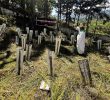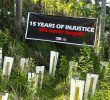On June 26, unidentified gunmen in Bulacan Province abducted University of the Philippines (UP) student Karen Empeno, former UP student council officer Sherlyn Cadapan, and local citizen Manuel Merino. The three reportedly were blindfolded and forced to board a “jeepney” (small commercial passenger vehicle) at gunpoint. The leftist human rights group Karapatan alleged that the Philippine Army’s 7th Infantry Division was responsible for the abduction. On July 19, the Supreme Court ordered the chief of AFP Northern Luzon Command, the commander of the 7th Infantry Division, and two other military officials to present the three victims to the Court of Appeals. However, these officials denied the AFP was holding them. At year’s end, the three were still missing. The Melo Commission investigated the case; however, there were no publicly known developments regarding the investigation at year’s end.
In August 2005 leftist political activists Armando Barquillo and Lirio de Castro were released a month after heavily armed men abducted them in Cavite City. They alleged that their abductors were military intelligence agents.
Efforts to locate three members of Bayan Muna reportedly abducted in Manila in 2004 by 10 armed men were unsuccessful. FIND claimed the Intelligence Service of the AFP was responsible.
Some victims’ families complained that the courts and police failed to address adequately their complaints concerning disappearances in which security forces were suspected. Evidence of a kidnapping or killing is required in order to file charges. FIND and Amnesty International’s Manila office continued to support the efforts of victims’ families to press charges. In most cases, evidence and documentation were unavailable, and convictions were rare. Out of 16 court cases related to disappearances of concern to FIND, none had been resolved as of year’s end. In May FIND filed a petition for a writ of habeas corpus against the suspected perpetrators in one case involving two victims, but as of year’s end the court had not granted the petition. Judicial inaction on the vast majority of disappearances contributed to a climate of impunity and undermined public confidence in the justice system.
c. Torture and Other Cruel, Inhuman, or Degrading Treatment or Punishment
The constitution prohibits torture, and evidence obtained through its use is inadmissible in court; however, members of the security forces and police were alleged to have routinely abused and sometimes tortured suspects and detainees. The CHR provides the police with mandatory human rights training, and senior PNP officials appeared receptive to respecting the human rights of detainees; however, rank-and-file awareness of the rights of detainees remained inadequate.
The TFDP stated that torture remained an ingrained part of the arrest and detention process. Common forms of abuse during arrest and interrogation reportedly included striking detainees and threatening them with guns. The TFDP reported that arresting officers often carried out such beatings in the early stages of detention.
A human rights NGO, the Philippine Alliance of Human Rights Advocates, also reported that police used excessive force in apprehending suspects.
Within the AFP, the CHR continued to observe greater sensitivity to the need to prevent human rights violations. CHR is required to determine whether an officer being considered for promotion has a history of human rights violations (see section 4); however, a negative CHR finding does not preclude promotion. The CHR also vets PNP officers at the senior superintendent level. Nevertheless, abuses still occurred. Human rights activists complained of abuses by security forces against suspected ASG and NPA members in captivity. According to the Moro Human Rights Center, some members of the AFP continued to beat ASG suspects.
The TFDP documented seven cases of torture involving 20 victims from January to December. The CHR investigated 11 cases of alleged torture during the year. The suspects in these cases mostly were members of PNP.
In April 2005 four farmers in Laak, Mindanao, accused the AFP of torturing them as suspected NPA collaborators. The CHR began an investigation but had not yet released any conclusion as of year’s end.
Extrajudicial Killings, Terrorism









